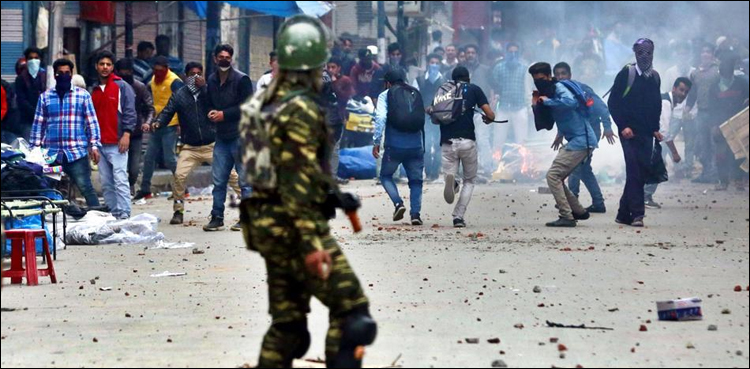
ISLAMABAD: Pakistan on Wednesday welcomed the report of the United Kingdom Parliament’s All Party Parliamentary Group on Kashmir (APPKG) on the human rights situation in occupied Kashmir and its recommendations.
The report of the UK Parliament’s All Party Parliamentary Group on Kashmir (APPKG), on the human rights situation in Jammu and Kashmir, has detailed severe Indian human rights atrocities in Indian occupied Jammu and Kashmir (IoK).
“Pakistan believes that the lasting solution of the Jammu & Kashmir dispute is essential for peace, security and stability of South Asia and beyond. India’s denials of this reality, its unwillingness to engage in dialogue and suppression of Kashmiri aspirations for freedom continue to endanger regional as well as international peace and security,” reads a statement issued by foreign ministry.
The APPKG report echoes many of the findings of the UN OHCHR Report on Jammu and Kashmir and is critical of the human rights atrocities being committed with impunity by Indian occupation forces in IoK, especially the use of pellet guns, draconian laws including the Armed Forces Special Powers Act (AFSPA) and the Public Safety Act (PSA).
The report also mentions presence of unmarked graves in IoK and enforced disappearances, which confirm the humanitarian emergency in IoK.
It is pertinent to note here that earlier in June this year, a similar report by United Nations Human Rights Commission said that Indian security forces used excessive force that led to unlawful killings and a very high number of injuries in Kashmir.
Citing civil society estimates, the report said that up to 145 civilians were killed by the security forces between mid-July 2016 and the end of March 2018.
One of the most dangerous weapons used against protesters in 2016 – and which is still being employed by India security forces – was the pellet-firing shotgun.
According to official figures, 17 people were killed by shotgun pellets between July 2016 and August 2017, and 6,221 people were injured by the metal pellets between 2016 and March 2017. Civil society organizations believe that many of them have been partially or completely blinded.
The post Pakistan welcomes UK parliamentary group’s report on India-Occupied Kashmir appeared first on ARYNEWS.
from ARYNEWS https://ift.tt/2OZ1vAW
Comments
Post a Comment